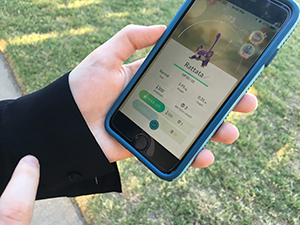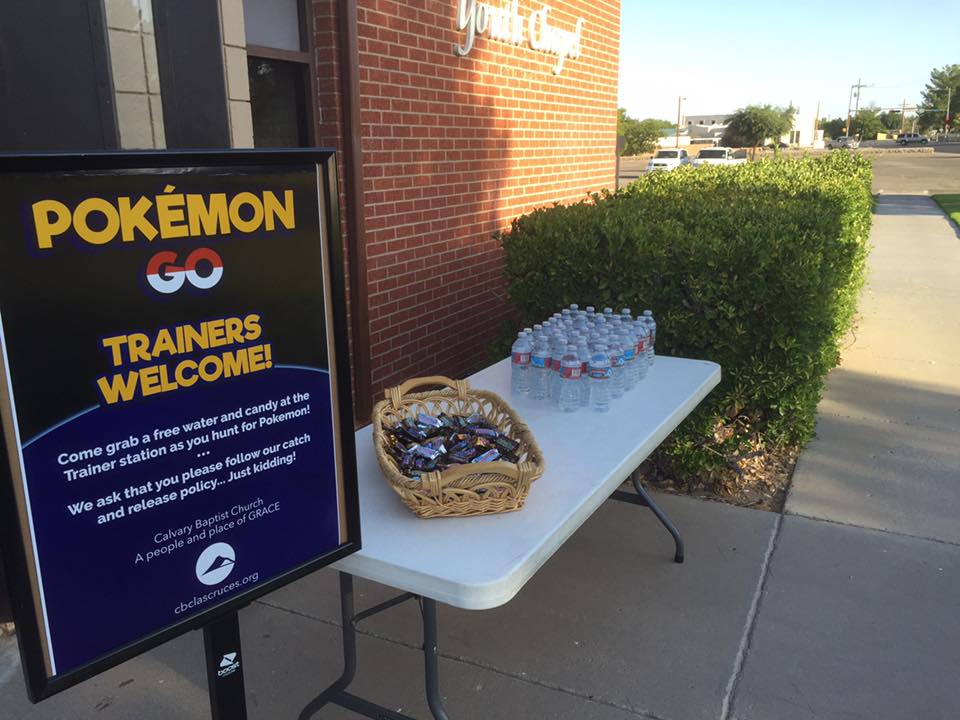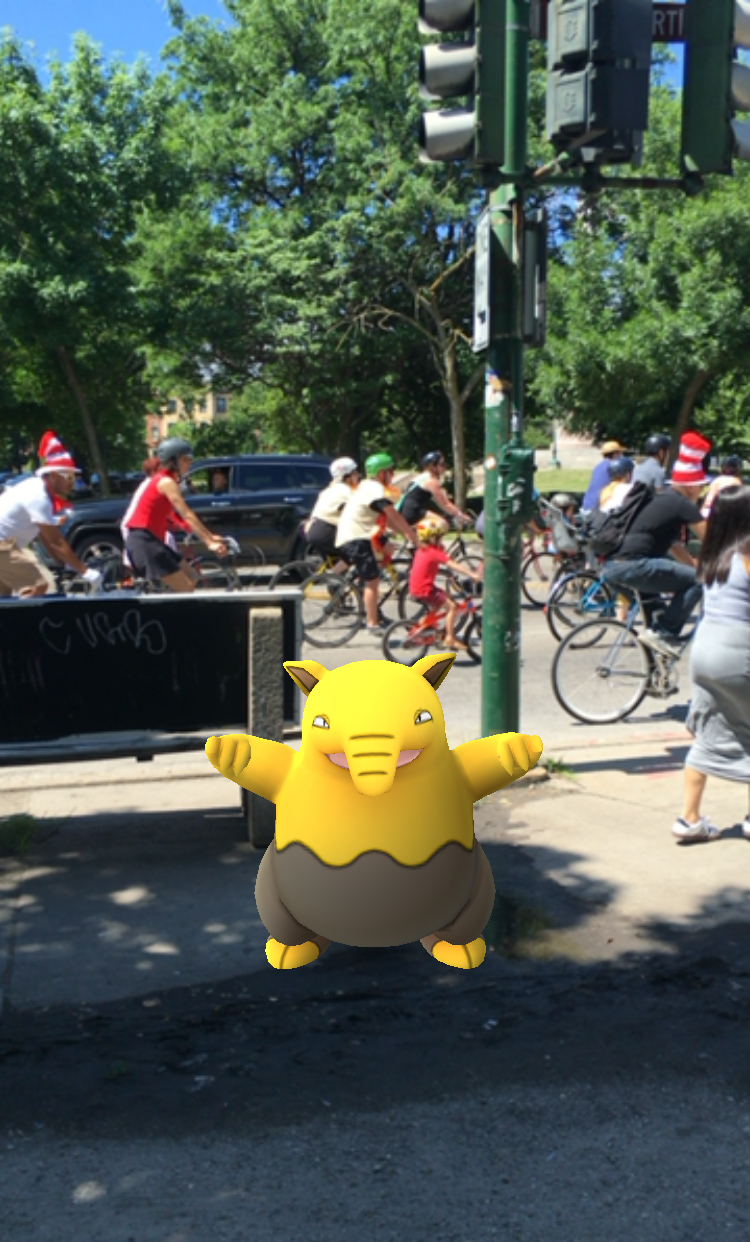No wonder churches are struggling to understand Pokémon Go, the smartphone-based augmented reality game whose lexicon includes terms like combat power, gyms, incubators, lucky eggs, Lure Models and PokeStops.
Pokémon Go is bewildering to the non-player. But just as certain, observers say, is the opportunity it presents churches to connect with a younger generation that has, so far, stymied them every bit as much as the ongoing gaming craze.

A Pokémon Go player searches for Pokémon. U.S. churches are asking how far they should go to embrace the game as a mission strategy. (Photo/Robert Couse-Baker/Creative Commons)
While few predict the game will flood houses of worship with those illusive Millennials, it may be opening an avenue of conversation between generations, those experts said.
But thinking big isn’t the place to start. Instead, those channels of communication may be opened through simple, local acts of hospitality, said Kevin Glenn, lead pastor at Calvary Baptist Church in Las Cruces, N.M.
“This whole Pokémon Go thing just dropped in our lap,” he said.
Before last week, Glenn said he knew next to nothing about the game, other than passing references on social media. Then a college student in his congregation posted an article about it on the pastor’s Facebook page.
This is when he learned that players — known as trainers in the game — use their smartphones’ GPS feature to detect and capture Pokémon, or animated characters. As players move around the community, they discover more and more characters. Combining real-world movement — scavenger-hunt style — to achieve online goals is known augmented reality.
But what got Glenn’s attention was the heads-up the article gave him that members of his congregation are likely playing the game, that his church may be a location in the game, and it may offer ways for the church to live out its mission.
That mission, he said, includes connecting with the culture and engaging with local communities to share the faith. So he got right back onto Facebook.
“I said Pokémon Go players are welcome at Calvary,” he said. That resulted in a flurry of praise, especially from Millennials.

A table offers waters and snacks to Pokémon Go players — known as trainers in the game — at Calvary Baptist Church in Las Cruces, N.M. (Photo/courtesy of Kevin Glenn)
He also learned there are two PokeStops on the church campus — including one at its front doors. So tables were positioned at those locations to provide players with bottled water and power strips to charge their smartphones.
“We’re also giving them the password to our guest Wi-Fi,” Glenn said.
“We are calling them training stations where we can engage them in conversation and hopefully invite them to church,” he said.
It may seem strange and technological, but it’s really nothing different for the church, he added. Christians have always had a responsibility to engage the culture in relevant, redemptive ways.
Pokémon Go is bringing people to Calvary’s campus who would otherwise never come near it.
“The church should be nimble enough to spring into action when we have those opportunities,” he said.
‘The festival is coming to them’
Church coaches say Pokémon Go offers a rare chance for churches to connect with Millennials.
“It’s an opportunity for good interaction with groups of folks the church would not typically interact with,” said George Bullard, president of The Columbia Partnership, a congregational consulting group based in South Carolina.

Characters, or Pokémon, appear on players’ screens at public locations. (Photo/Topher McCulloch/Creative Commons)
But congregations must possess some degree of social media savvy to tap into the movement.
“For churches that don’t already have a critical mass of people who get it about Pokémon Go, this won’t do anything for them,” he said.
Christians struggling to understand what’s going on should picture sending a ministry team to a festival.
“Except the festival is coming to them,” Bullard said. “Are you going to ignore them or interact with them?”
Participating in some way is an investment in the culture and a chance to call younger members into leadership to interact with players.
But Bullard cautioned congregations from seeing Pokémon Go as an avenue to bolster dwindling memberships.
“Just because they come doesn’t mean they are really interested in what you have to say,” he said. “It just creates an opportunity to engage young people.”
Maximize the conversation
The importance of that engagement goes well beyond Pokémon Go, said Eddie Hammett, a congregational coach and president of the North Carolina-based Transforming Solutions.
Hammett said he’s heard that some older Christians oppose welcoming the players because it feeds an already too-strong preoccupation with technology that they see as a threatening.
But positive results are already being reported from congregations that have been open to the gamers. That conversation is not about inviting people to church, but about building bridges between young and old, religious and secular.
Hammett said it’s possible a conversation has begun that will continue long after Pokémon Go is gone.
“It really is stimulating a good conversation between the generations,” he said. “Where it is going to take us, I don’t know.”


